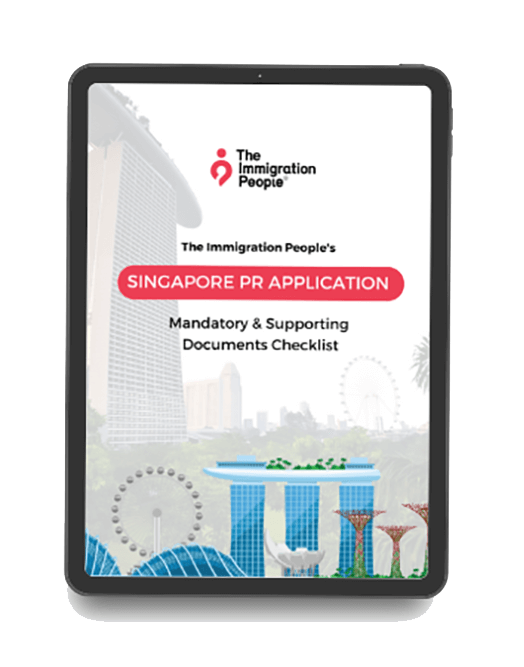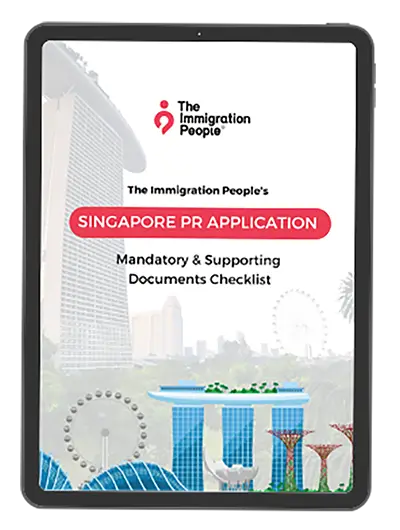South East Asia, with its rich cultural heritage and booming economies, has become a magnet for individuals seeking to establish a new home base through Permanent Residency (PR) status. This diverse region offers a range of lifestyles and opportunities that attract future-minded migrants from across the globe. Securing PR in a Southeast Asian country offers benefits like long-term residence, employment prospects, and in some cases, a path to citizenship.
Eligibility Criteria for PR in South East Asia
The eligibility criteria for applying for permanent residency (PR) in Southeast Asia typically involve a combination of age, employment history, financial stability, and adherence to health and security regulations. These requirements ensure that applicants are capable of integrating into the local society and contributing to the economy.
Age and Employment Requirements
Applicants for PR should meet specific age criteria and possess a certain level of professional experience. Countries may require an applicant to:
- Be within a certain age range: Typically, applicants need to be of working age, which can vary by country.
- Have a stable employment history: Evidence of stable and legal employment is crucial, often including a work visa that demonstrates legitimate business activities.
Documentation and Financial Stability
Sound financial status is essential for PR applicants. They are generally expected to:
- Prove financial stability: This may include tax documents, bank statements, or proof of investment.
- Provide necessary documents: A complete set of required documents varies but often includes a passport, birth certificate, marriage certificate (if applicable), education certificates, and employment records.
Security and Health Checks
Security and health checks are vital to safeguard the well-being of residents in South East Asian countries. Applicants usually need to:
- Undergo a thorough security vetting: This can include police clearance certificates and possibly background checks.
- Pass health examinations: A medical check-up confirming the applicant is free from contagious diseases is a standard requirement.
Adherence to these criteria underpins the evaluation of an individual's eligibility for permanent residency in Southeast Asia. It assures host countries that the applicant is legally, financially, health-wise, and morally fit to become a long-term resident.
Comparative Analysis of PR Policies
This section presents a detailed examination of Permanent Residency (PR) policies across five key nations in Southeast Asia, each with unique offerings for prospective residents.
1. Singapore: A Hub of Economic Prosperity
Singapore stands out as a beacon of economic strength and political stability in Southeast Asia. Known for its robust economy, Singapore is a global financial centre with a highly developed market economy. It's politically stable, with a parliamentary republic type of government, and is renowned for its efficiency and low levels of corruption.
Visa Programs
Singapore offers several pathways for residency. The Employment Pass is designed for professionals and executives with job offers in Singapore, requiring a minimum salary as set by the latest guidelines. For entrepreneurs, the EntrePass is an attractive option, allowing business owners to start and operate a business in Singapore.
High-net-worth individuals can opt for the Global Investor Program, which provides a path to permanent residency through substantial investments in business or GIP-approved funds.
Taxes
Singapore has one of the most attractive tax regimes in Southeast Asia. The corporate tax rate is capped at 17%, appealing to businesses. For individual income tax, rates are progressive, up to 22% for residents, and lower for non-residents.
Notably, Singapore does not tax foreign-sourced income unless it is remitted into the country, which is a significant advantage for foreign nationals.
Property Market
Real estate in Singapore is known for its high quality but also high cost. However, the government has implemented various measures to cool down the property market, resulting in more stable prices in recent years.
Currency Strength
The Singapore Dollar (SGD) is one of the strongest and most stable currencies in the Asia Pacific region.
2. Malaysia: Cultural Diversity and Economic Growth
Malaysia, known for its rich cultural heritage and natural beauty, also boasts a rapidly growing economy, driven by its natural resources and tourism. The political situation is generally stable, with a federal constitutional monarchy in place.
Visa Programs
The Malaysia My Second Home (MM2H) program is popular among retirees and those seeking long-term residency. It requires proof of financial stability but offers a long-term visa. For skilled professionals, the Residence Pass-Talent (RP-T) provides a 10-year renewable visa, catering to those with expertise in specific industries.
Taxes
Malaysia's maximum personal income tax rate is 30%, while the corporate tax rate stands around 24%. For foreign-sourced income, Malaysia adopts a territorial tax system, meaning only income earned within Malaysia is taxed.
Property Market
The Malaysian property market offers more affordable options compared to Singapore. The trend in recent years has shown steady growth, particularly in urban areas.
Currency Strength
The Malaysian Ringgit (MYR) is less strong compared to SGD but offers favourable exchange rates for many foreign nationals.
3. Thailand: The Land of Smiles with Booming Tourism
Thailand's economy is heavily driven by tourism and agriculture, and it's known for its friendly people and rich cultural experiences. The political climate has seen fluctuations, but it generally maintains a stable environment for expatriates and investors.
Visa Programs
The Thai Elite Visa is tailored for affluent foreigners, offering a renewable 5-year visa and various privileges. For those looking to invest, the Investment Visa requires investment in Thai government bonds or real estate.
Thailand's property investment opportunities are particularly attractive to foreigners, albeit with certain restrictions.
Taxes
Thailand's income tax rates range up to 35%, while the corporate tax rate is about 20%. Thailand taxes foreign-sourced income only if it is brought into the country within the same year it's earned.
Property Market
Real estate in Thailand has been attractive to foreign investors, especially in tourist areas like Bangkok and Phuket. Prices have been increasing steadily, making it a potentially lucrative investment.
Currency Strength
The Thai Baht (THB) is relatively stable but can be subject to fluctuations due to its heavy reliance on tourism and exports.
4. Vietnam: Rapid Economic Development and Cultural Richness
Vietnam is experiencing rapid economic growth, particularly in manufacturing and information technology sectors. Politically, it's a one-party socialist republic, which has seen increased economic liberalization in recent years.
Visa Programs
Vietnam's Investor Visa is ideal for those investing in Vietnamese enterprises, offering various benefits. The Business Visa caters to foreign business people working or starting ventures in Vietnam. Property investment in Vietnam is possible for foreigners, with some limitations.
Taxes
Vietnam's personal income tax rates can go up to 35%, and the corporate tax rate is around 20%. Foreign-sourced income is generally not taxed unless it is remitted into Vietnam.
Property Market
Vietnam's property market has been booming, with significant appreciation in property values in major cities like Ho Chi Minh City and Hanoi. This offers a great opportunity for real estate investment.
Currency Strength
The Vietnamese Dong (VND), while not as strong as other Asian currencies, benefits from the country's rapid economic growth.
5. Indonesia: A Blend of Natural Beauty and Emerging Opportunities
Indonesia, the largest archipelago in the world, is not only known for its breathtaking natural landscapes and rich cultural diversity but also for its growing economy.
As the largest economy in Southeast Asia, Indonesia has a mixed economy with both modern industry and commerce along with traditional village farming and crafts.
The political system is a presidential, representative democratic republic, which has seen significant reforms since the late 20th century, leading to greater stability and democratic processes.
Visa Programs
Indonesia offers a variety of visa options for those looking to relocate, work, or invest in the country. The most notable is the Indonesia Retirement Visa, available to retirees from abroad who want to spend their retirement years in Indonesia.
This visa requires proof of a pension or regular income to ensure financial stability during the stay.
Taxes
Indonesia has a maximum personal income tax rate of 30% and a corporate tax rate of around 22%. Indonesia taxes worldwide income, including foreign-sourced income, for its residents.
Property Market
The Indonesian property market, particularly in Bali and Jakarta, has seen significant growth, attracting many foreign investors. However, there are restrictions on foreign ownership of property.
Currency Strength
The Indonesian Rupiah (IDR) is less strong compared to other Southeast Asian currencies but offers good value in terms of real estate and cost of living.
Frequently Asked Questions about Exploring Permanent Residency in South East Asia
How does the cost of living in these Southeast Asian countries compare to the Western world?
The cost of living in Southeast Asian countries generally offers more affordability compared to the Western world. Factors like monthly income, lifestyle, and location within the country play a significant role. Countries like Malaysia and Indonesia are known for their lower cost of living, while Singapore, being a global financial centre, tends to be on the higher side.
Can owning a company in these countries fast-track the PR process?
Owning a company can indeed be beneficial, especially in countries like Singapore and Indonesia, where business development and entrepreneurship are encouraged. Programs like Singapore's EntrePass are specifically designed for business owners, potentially facilitating a faster route to PR.
What are the prospects for financial freedom in these countries for expatriates?
Southeast Asia offers great prospects for financial freedom, particularly due to its growing economies and favourable tax rates. Countries like Singapore and Malaysia have competitive tax regimes, which can be advantageous for foreign nationals seeking to maximize their income and savings.
Are there any retirement visa options available in these countries?
Yes, countries like Malaysia and Indonesia offer retirement visas. The Malaysia My Second Home (MM2H) program and Indonesia’s Retirement Visa are tailored for retirees, allowing them to enjoy their retirement years in these countries with certain financial requirements.
What is the general trend in property prices and real estate investment in these countries?
Real estate trends vary across these countries. While Singapore has a high but stable property market, countries like Vietnam and Indonesia are seeing rapid growth in their real estate sectors. This growth offers potentially lucrative opportunities for real estate investment.
How does the concept of dual citizenship work in these countries?
Most Southeast Asian countries do not recognize dual citizenship. However, permanent residency can often be a pathway to citizenship, subject to the laws of the respective country and the relinquishment of the original citizenship, as per the general rule in these nations.
Is it possible to live tax-free in any of these countries?
While living completely tax-free is unlikely, several countries offer favorable tax conditions. For example, Singapore and Malaysia have territorial tax systems, meaning foreign-sourced income may not be taxed if not remitted into the country, under certain conditions.
What are the possibilities for visa-free travel with PR status in these countries?
Visa-free travel possibilities depend on the passport held by the PR holder. However, gaining citizenship in countries like Singapore can significantly increase visa-free travel options, as they have strong passports globally.
How do these Southeast Asian countries rank in terms of natural beauty and cultural experiences?
Southeast Asia is renowned for its natural beauty and rich cultural heritage. Countries like Indonesia, with its beautiful archipelago, and Thailand, known for its stunning beaches and historical sites, are highly rated for their natural and cultural offerings.
Is there a preference for PR applicants from certain countries or regions?
Generally, there is no explicit preference for applicants from specific countries. The evaluation is based on individual merit, adherence to the eligibility criteria, and the potential contribution to the host country.


